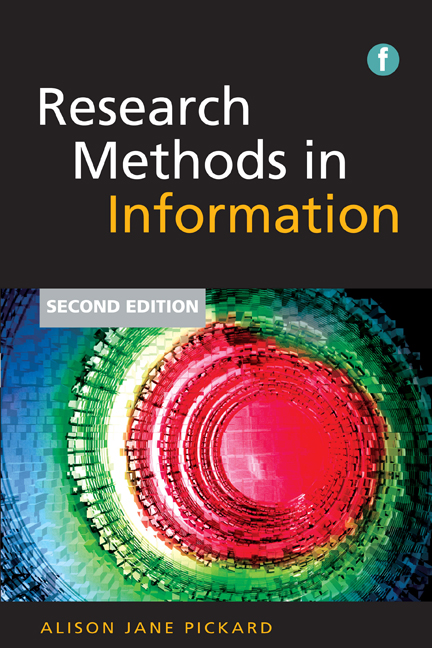Book contents
- Frontmatter
- Contents
- Preface to the second edition
- Acknowledgements
- Introduction
- Part 1 Starting the research process
- Part 2 Research methods
- 8 Case studies
- 9 Surveys
- 10 Experimental research
- 11 Usability testing
- 12 Ethnography
- 13 Delphi study
- 14 Action research
- 15 Historical research
- 16 Grounded theory: method or analysis?
- Part 3 Data collection techniques
- Part 4 Data analysis and research presentation
- Part 5 Glossary and references
- Index
14 - Action research
from Part 2 - Research methods
Published online by Cambridge University Press: 08 June 2018
- Frontmatter
- Contents
- Preface to the second edition
- Acknowledgements
- Introduction
- Part 1 Starting the research process
- Part 2 Research methods
- 8 Case studies
- 9 Surveys
- 10 Experimental research
- 11 Usability testing
- 12 Ethnography
- 13 Delphi study
- 14 Action research
- 15 Historical research
- 16 Grounded theory: method or analysis?
- Part 3 Data collection techniques
- Part 4 Data analysis and research presentation
- Part 5 Glossary and references
- Index
Summary
Introduction
Action research can be a powerfully liberating form of professional enquiry because it means that practitioners themselves investigate their practices as they find ways to live more fully in the direction of their educational values.
(McNiff and Whitehead, 2011, 8)Action research is rapidly becoming one of the most popular research methods in information and communication research among practitioners. Increasingly they are recognizing the value of this approach in improving service provision, encouraging reflective practice and structuring and disseminating experience to the wider community. Action research has been used to investigate organizational functions such as the role of the library and library staff in the provision of distance learning programmes (Bailey et al., 2004), for educational research investigating individual solutions to differing learning needs, such as tackling student referencing errors (Kendall, 2005), and to improve students’ information literacy skills over a longitudinal series of interventions (Pickard, 2005). As Rowley points out:
Action research encourages practitioners to acquire the habit of researcher in the workplace, and provides them with an approach that teaches them to critically evaluate their practice. Action research differs from other research approaches in that it assumes a tight coupling between research and action. In traditional research, findings and theories may serve as a basis for recommendations for future action. With action research, action and research proceed in parallel. In addition, action research depends upon a collaborative problem solving relationship between the researcher and the client with the aim of both solving a problem, and generating new knowledge.
(Rowley, 2004, 212)Kurt Lewin is the sociologist who first used the term ‘action research’, to describe his work in the field of human dynamics with individuals affected by post-war social problems. He believed that in order to truly make a difference some form of change or action had to be embedded in the research design from the outset. An investigation leads to some form of action, which is followed by an evaluation of that action: ‘The research needed for social practice can best be characterized as research for social management or social engineering. It is a type of action-research, a comparative research on the conditions and effects of various forms of social action, and research leading to social action. Research that produces nothing but books will not suffice’ (Lewin, 1948, 202).
- Type
- Chapter
- Information
- Research Methods in Information , pp. 157 - 166Publisher: FacetPrint publication year: 2013



